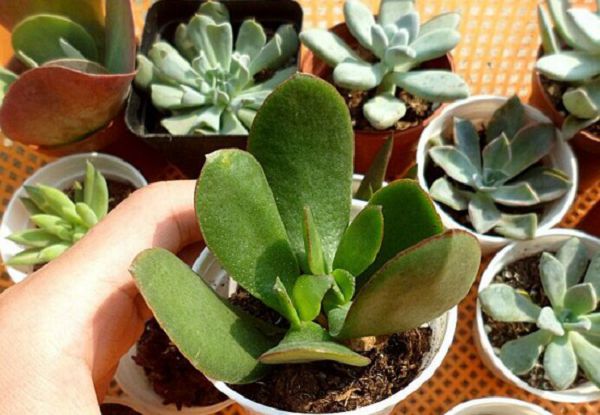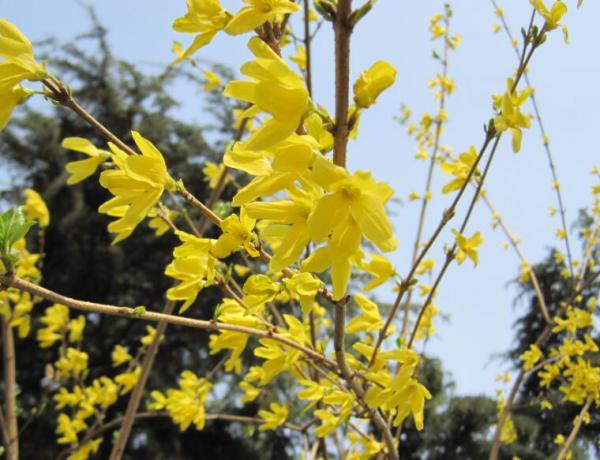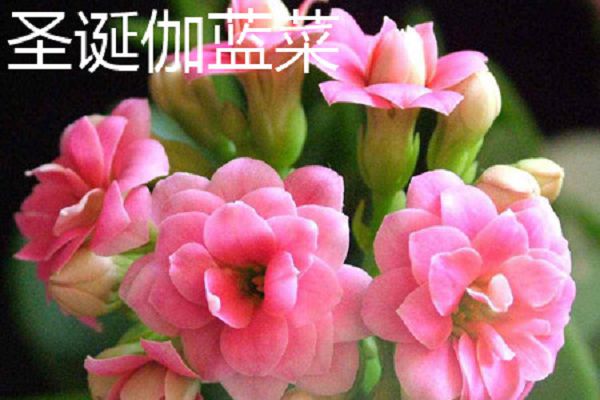Conservation and management method of Yushu flower potted landscape

Yushu flower, also known as swallow palm, is native to southern Africa. Like warm, dry and sunny environment. Not resistant to cold, afraid of strong light, slightly resistant to shade. The sandy loam with fertile and well-drained soil is better. The winter temperature is not lower than 7 ℃.
Yushu flower crown tall and straight beautiful, green stems and leaves, terminal white flowers, very elegant and chic. If matched with a pot rack, gravel processing into a small bonsai, decorative coffee table, desk more attractive, commonly used cutting propagation. In the growing season, cut the thick and full top branches, grow 8-10 cm, dry them slightly, insert them into the sand bed, and take root for about 3 weeks. Single leaf cuttings can also be used, and leaves can be cut and left to dry. Then insert the sand bed, take root about 4 weeks after insertion, and put on the basin when the root is 2-3 cm long. Cultivation needs to change pots and add fertile soil every spring.
Swallow palm grows faster, in order to keep the plant shape plump, fat and water should not be too much. During the growing period, it was watered 2-3 times a week, and watering was strictly controlled from July to August when it was hot and humid. Midsummer, such as poor ventilation or excessive lack of water, will also cause leaves to turn yellow and fall off, which should be maintained in a semi-shady place. Watering decreases gradually after the beginning of autumn. Outdoor cultivation, to avoid torrential rain, otherwise too much water in the roots, it is easy to cause rotten root death. When changing pots or putting rooms in autumn every year, attention should be paid to shaping and pruning to make the plant shape more simple and elegant.
Yushu is easy to raise, mainly to bask in the sun. Don't pour too much water. Yushu has strong adaptability, extremely resistant to drought and lax requirements for soil. During the growth period, you only need to keep the basin soil slightly moist and ventilated environment, watering should not be too much, see dry and then pour, basin soil stagnant water will cause rotten roots. If the basin soil is too dry in summer, it will also cause fallen leaves. Fertilizer is generally not needed in the process of cultivation, and thin liquid fertilizer can be applied 1-2 times a year.
Pruning: Yushu pruning can be carried out according to everyone's preferences. The crown of Camptotheca acuminata is round and plump, and the overgrown branches are cut off when pruning, so that the outer crown of the plant is complete and the inner branches are dense properly. If the tree age is long, the old trunk is stout and the crown is not very round, it can be pruned or stump bonsai type, and part of the branches and leaves should be cut off according to the modeling needs.
Light and temperature control: spring and autumn are the suitable growth periods for Yushu, and the optimum growth temperature is 20-30 ℃. High temperature in summer should be shaded to avoid direct sunlight, and the growth is slow when the temperature is over 38 ℃. Keep it indoors in a sunny place in winter and keep it at room temperature of 7-10 ℃. If the temperature is below 0 ℃, it will freeze to death.
Water and fertilizer management: during the growing period, Yushu is watered every 2-3 days, but can not accumulate water. When it is hot in summer, watering should be strictly controlled and ventilation should be strengthened, otherwise it is easy to cause fallen leaves. Watering should be reduced in winter, and the basin soil should be slightly dry. Topdressing fertilizer should be applied during the growing period, generally applying rotten thin cake liquid fertilizer 2-3 times a month. In order to keep the plant shape of Yushu plump, fat and water should not be too large, so as not to cause overgrowth.
Pest management: the main diseases are charcoal disease and leaf spot disease, which can be sprayed with 1000 times of methyl topiramate wettable powder. The indoor ventilation is poor, and the stems and leaves are vulnerable to shell insects. They are sprayed with 1000 times of omethoate emulsion.
Warm reminder:
Yushu contains toxic enzymes that release substances harmful to the human body. the sap of its stems and leaves is strongly irritating to the skin and cannot be placed indoors. Human contact with the sap from branches and leaves can cause redness, swelling, pain and blistering of the skin, which can cause blindness if splashed into the eyes. If Yushu is well taken care of, it will blossom every year, and if not, it will not blossom once in 20 years.
Related
- Fuxing push coffee new agricultural production and marketing class: lack of small-scale processing plants
- Jujube rice field leisure farm deep ploughing Yilan for five years to create a space for organic food and play
- Nongyu Farm-A trial of organic papaya for brave women with advanced technology
- Four points for attention in the prevention and control of diseases and insect pests of edible fungi
- How to add nutrient solution to Edible Fungi
- Is there any good way to control edible fungus mites?
- Open Inoculation Technology of Edible Fungi
- Is there any clever way to use fertilizer for edible fungus in winter?
- What agents are used to kill the pathogens of edible fungi in the mushroom shed?
- Rapid drying of Edible Fungi



